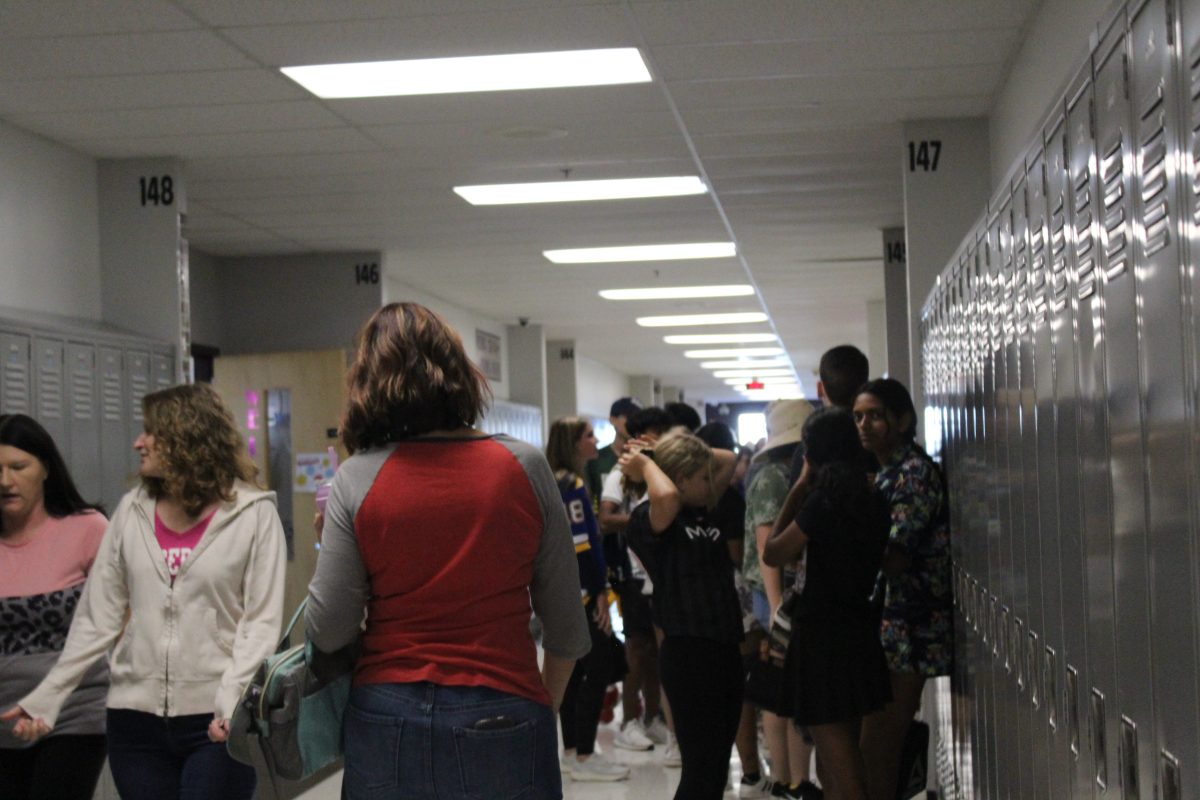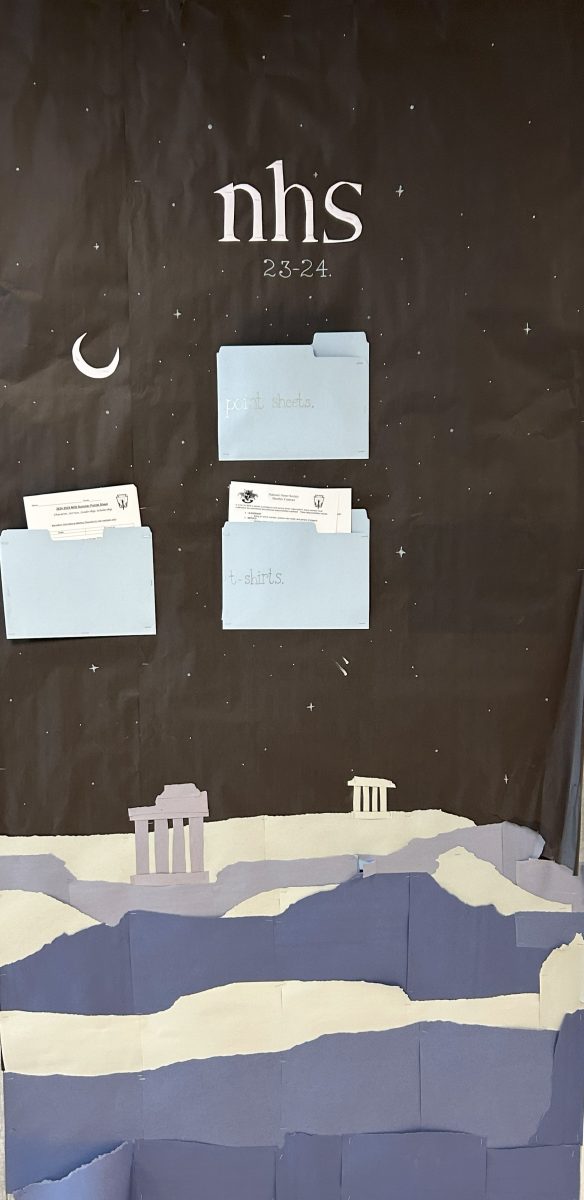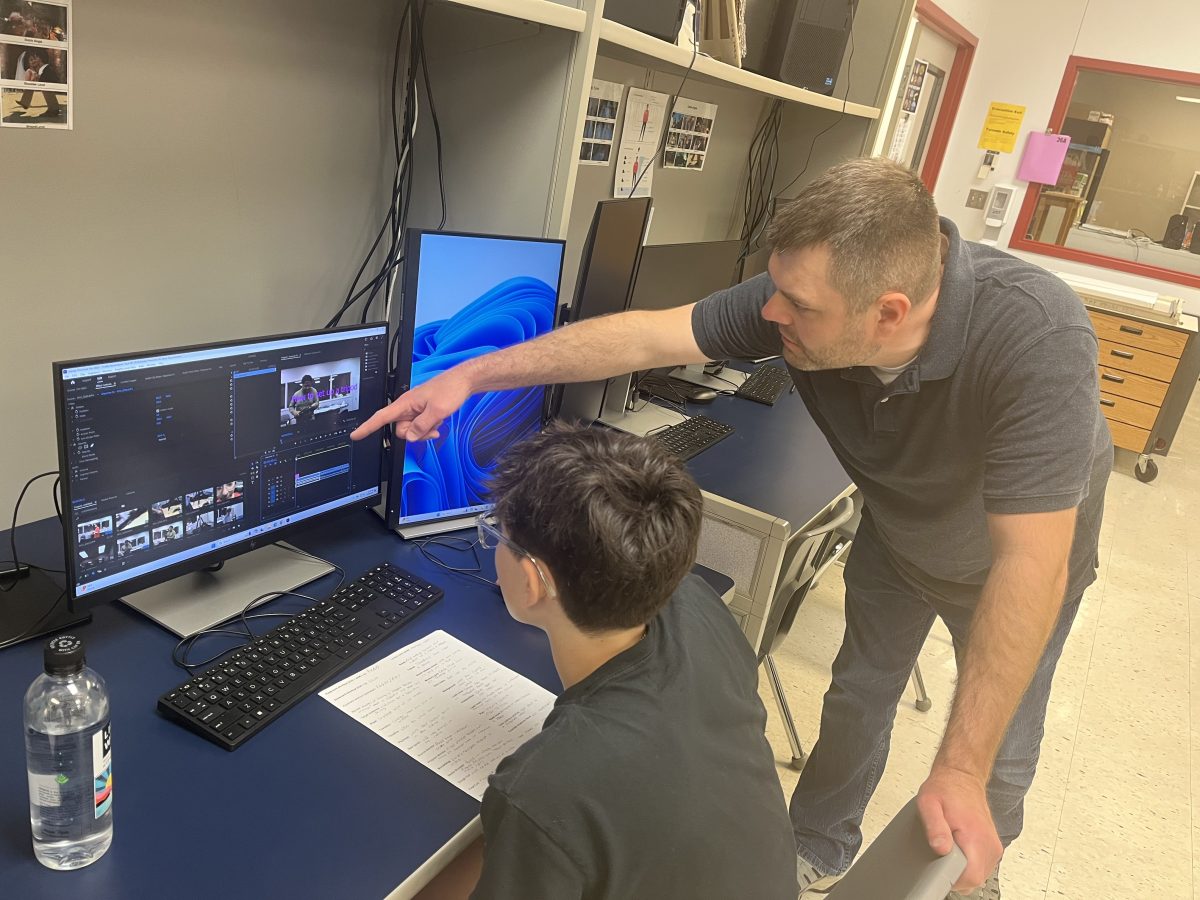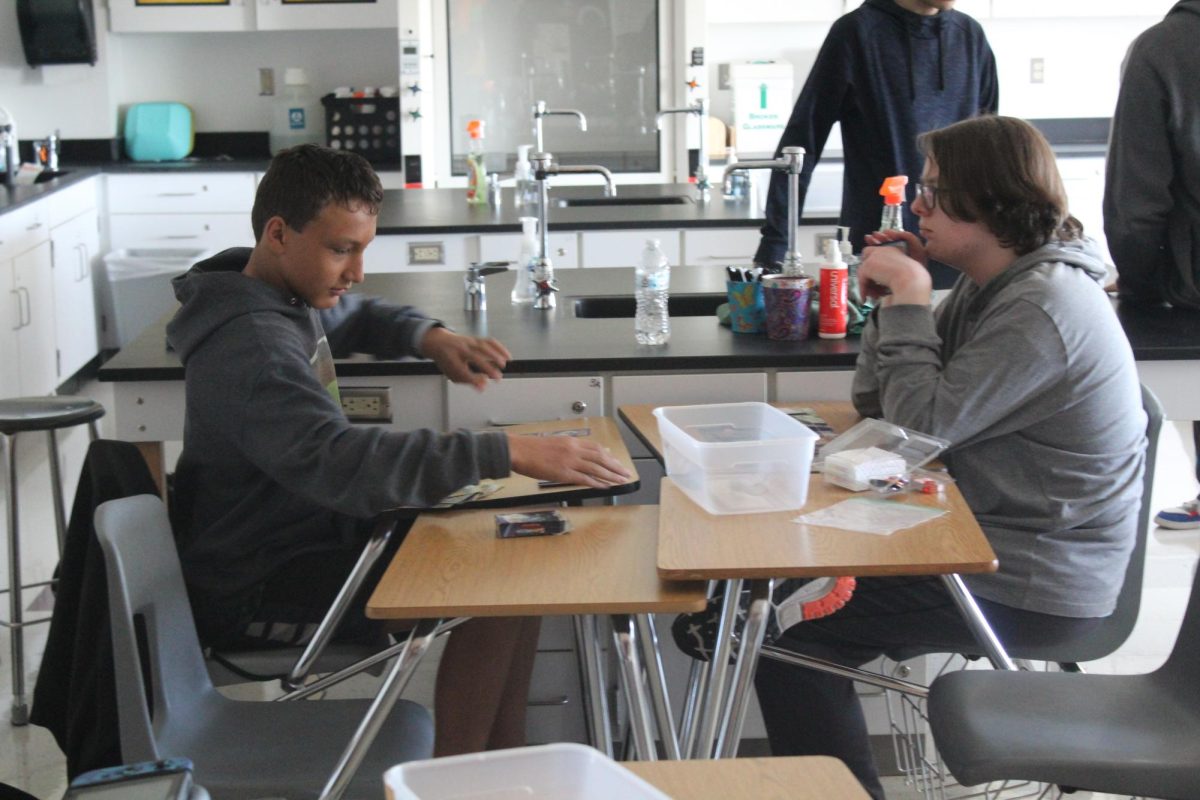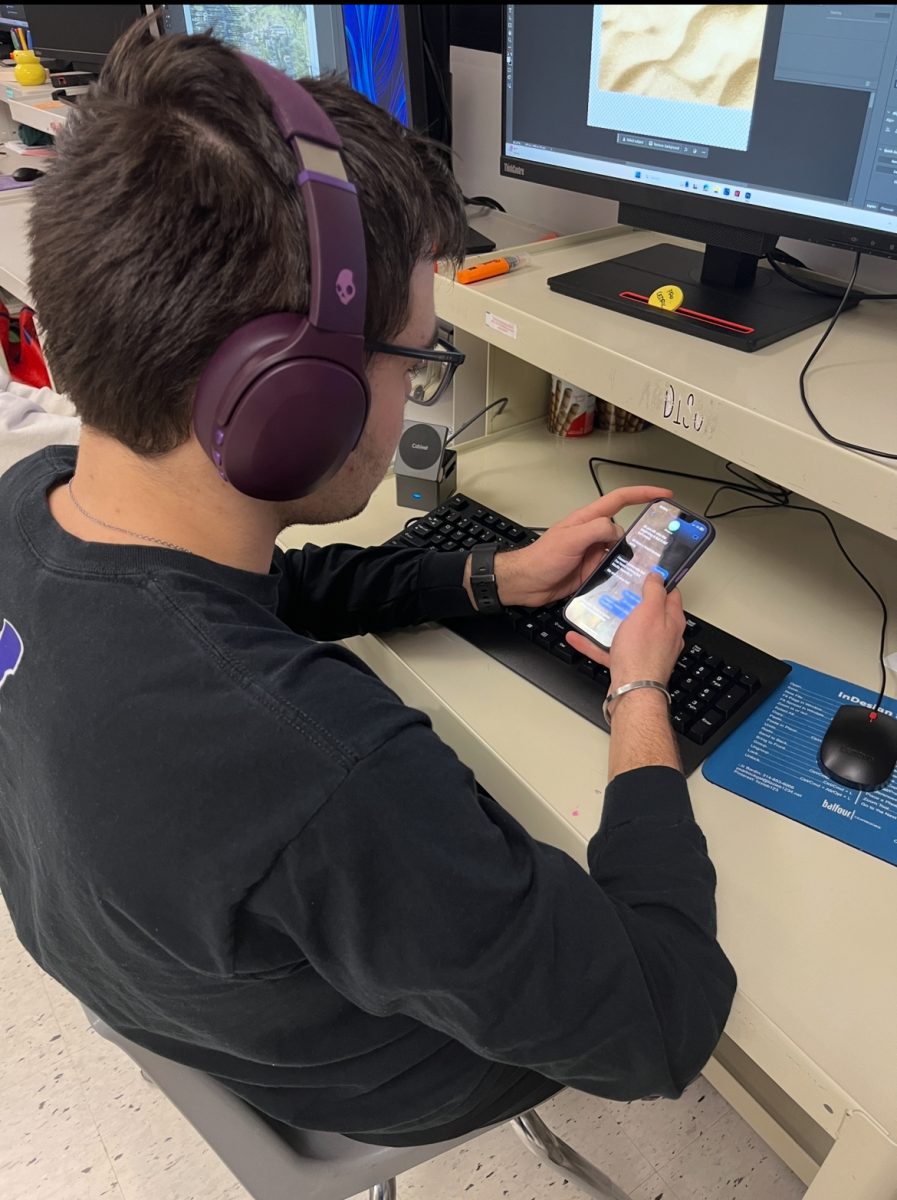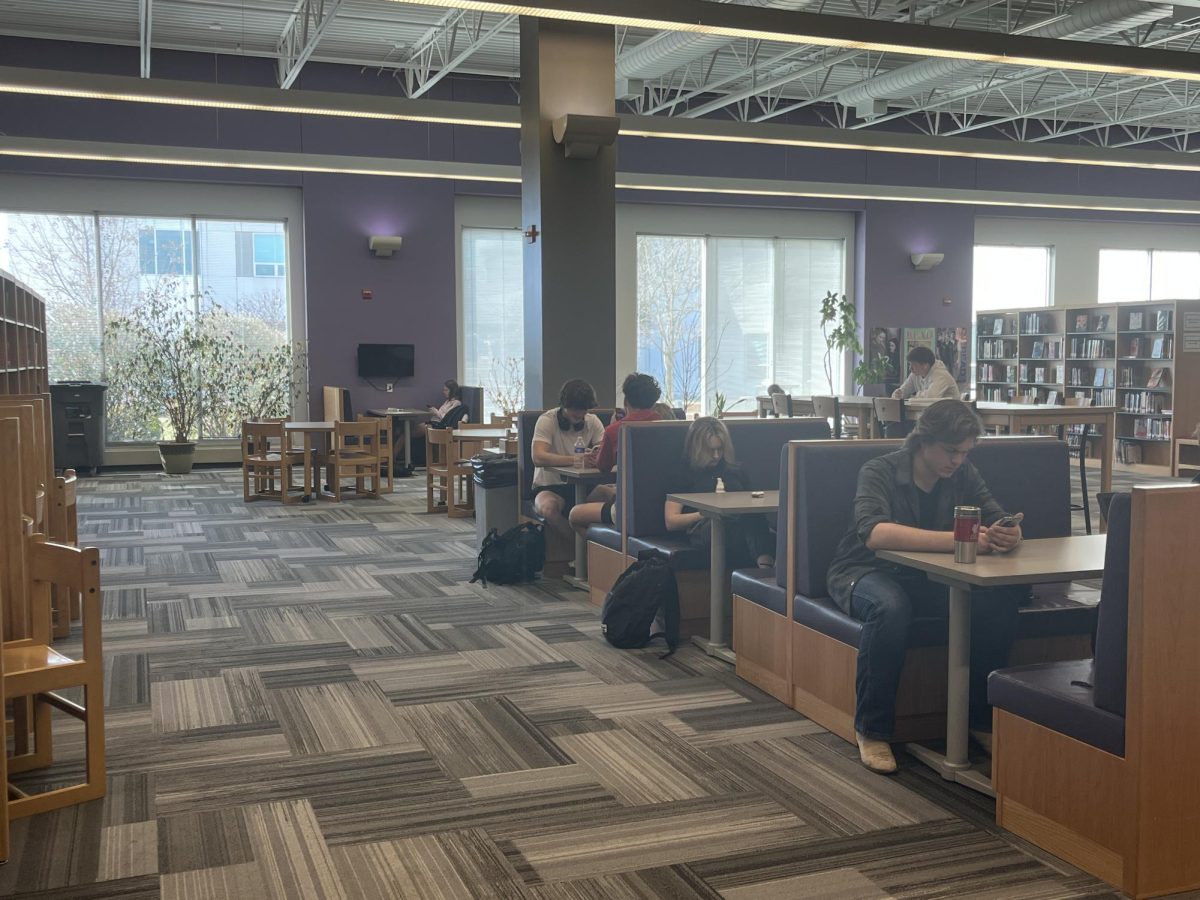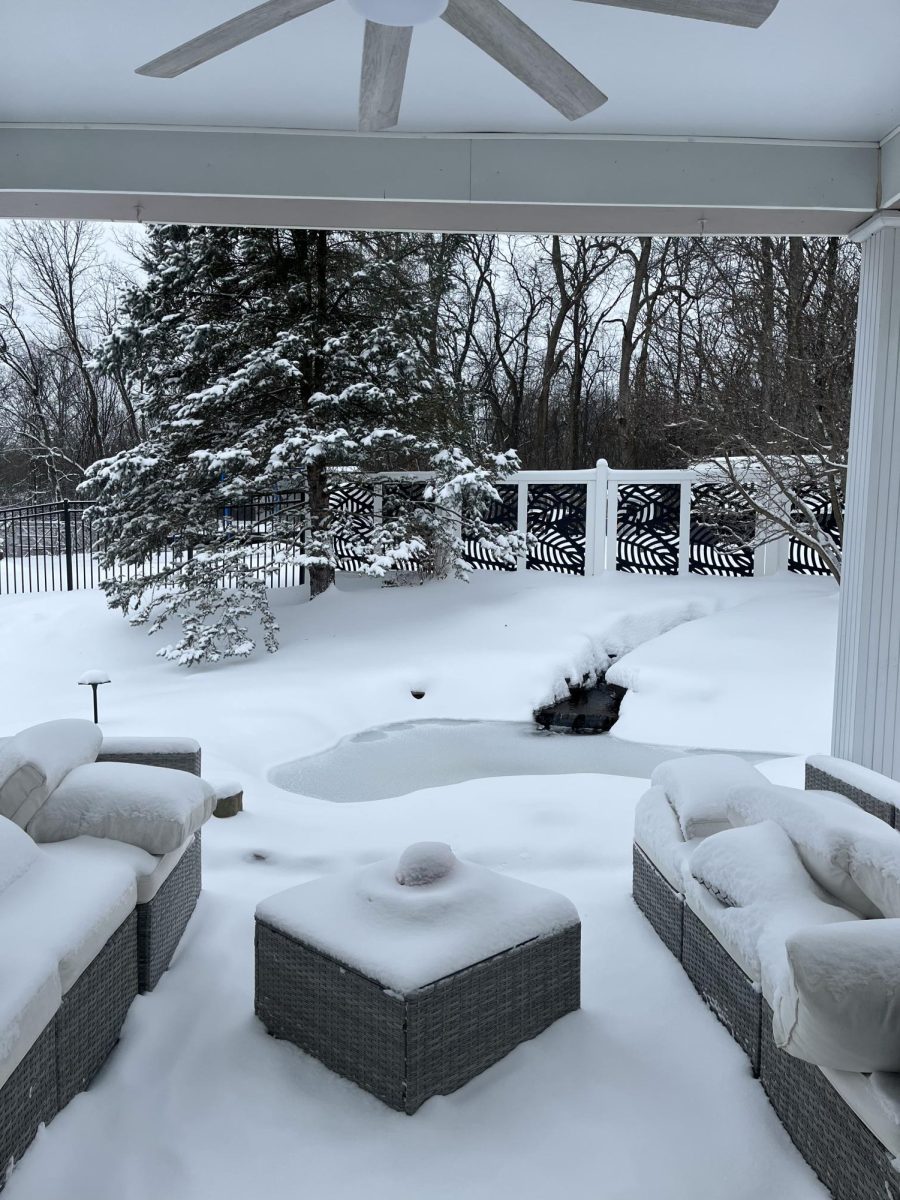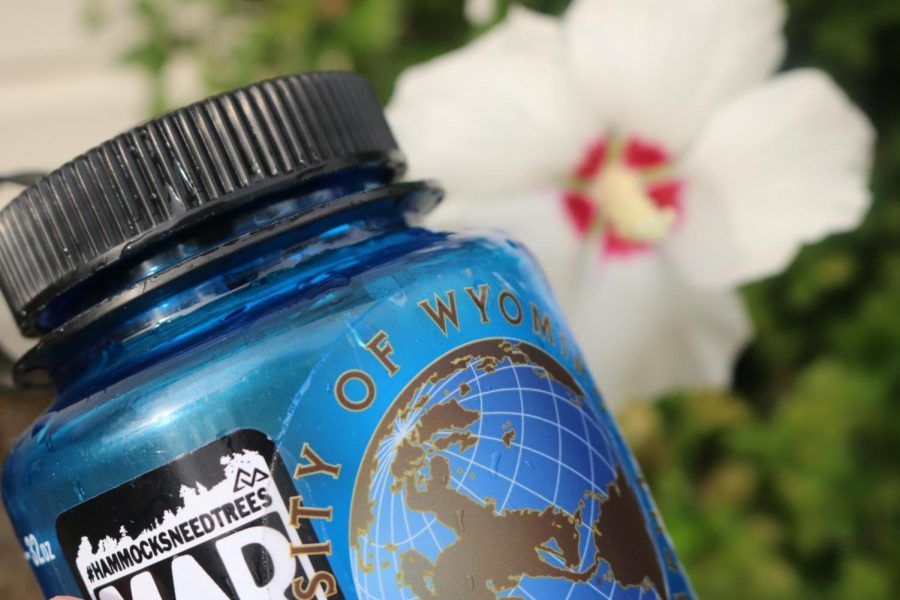Green Guidance
Steps to becoming environmentally conscious.
Reusable water bottles benefit the Earth and encourages hydration.
The planet is in crisis. Threats to the Earth are more prominent than they have been before. One might wonder what they can do to make a difference when they are stuck inside of a school all day. There are many opportunities to decrease the school’s carbon footprint and give back to the Earth. In a normal day, the school takes steps to better their impact, such as recycling through Republic Services, central controlled heating and timed lighting, there are many things that can be done.
WHAT STUDENTS CAN DO:
REDUCE WASTE:
As a student, it is hard to find ways to aid the planet, but taking small steps can lead to big change. A solid start to changing one’s environmental impact can be by becoming aware of the waste creation. Begin with packing low waste or waste free lunches. Using tupperware, lunch boxes and reusable utensils are a few ways of slowly stopping the increase of the plastic clogging up the ocean. According to a study published in the Time Journal, 8 million tons of plastic end up in the ocean each year, includes straws, plastic bags, styrofoam cups and more.
Companies and cities across America have taken to creating campaigns to ban plastic, such as the initiatives in Seattle, banning straws in attempt to save sea life. In a poll taken by West students, 44 percent of students go to QuikTrip once or twice a week. Imagine if all of the styrofoam cups and straws bought were replaced by reusable cups. Picture how many turtles one school alone could save. Soda bottles are not the only offenders, the Fort Zumwalt district bought 4,000 packages of 24 plastic water bottles in 2017. Instead of wasting that plastic, grab a refillable water bottle instead, not only saving money but the Earth.
“Bring a reusable water bottle,” senior Jamie Hammond said. “It cuts down in so much terrible plastics in the ocean that harm wildlife and it gets you to drink more water.”
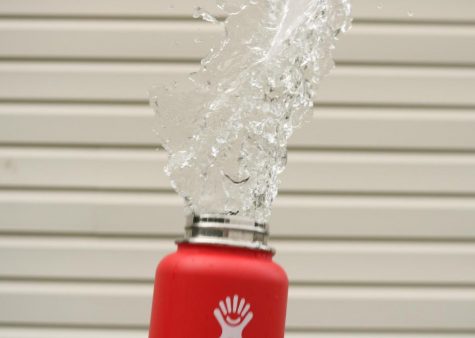
Save the oceans by buying a reusable water bottle.
GET INVOLVED:
Caring about this planet is increasing in importance. Find something such as an organization, a campaign or a small change one wants to make.
“I am part of the [People for the Ethical Treatment of Animals] club that helps youth stay involved in environmental and animal rights issues and I have donated to the World Wildlife Fund before, and I regularly keep a garden to keep fresh organic produce in the house,” Hammond said.
Learn and educate about the issues facing the Earth and how to get involved in the community. One of the many issues facing the population is the ignorance that comes with disregarding environmental problems.
“If we don’t [make a change] we’re going to have a lot of problems and have to worry about man-making what the Earth gives us for free, like clean water, oxygen and food,” Hammond said. “I also want my great great grandkids to see how beautiful the Earth is and to have clean air to breath and trees.”
WHAT THE SCHOOL CAN DO:
PRESERVE PAPER:
Paper is an expected part of a school day, whether that be for taking tests, filling out worksheets or passing notes. Almost every student touches paper. In an average year, West uses 5 million pieces of paper. In the academic year of 2019 to 2020, the school plans on providing a Chromebook to every student. However, even in 2018 paperless classrooms could save the school as much as $25,000. That is a lot of money that could be redirected into other school needs such as better lunches, sports, arts or classroom needs.
In a poll taken, 53 percent of West High students believe they use less than 100 pounds of paper a year, when in reality the average person uses about 749 pounds according to ecology.com. Recycled paper products and other school supplies are a better alternative for teachers, administration and students, who feel as though they still need the old school comfort of paper.
“[The school could] purchase recycled copy paper or take a look at other schools that have taken steps to be more environmentally conscious and implementing some of their policies,” English teacher Dona Coleman said.
SERVE MEATLESS MONDAY:
The overeating of meat is problematic for the Earth. Agricultural farming uses 70 percent of the world’s freshwater, according to the World Wildlife Foundation. Animal agriculture is the leading cause of species extinction, ocean dead zones, water pollution and habitat destruction shown in multiple studies highlighted in the documentary Cowspiracy. Schools can cut down on their carbon footprint by implementing a meatless Monday in the cafeteria.
“Meatless Mondays are also designed to raise awareness of the health impact of eating too much meat and animal products, as well as the environmental impact of industrial meat production,” Grace Chen from Public School Review said. “For schools, meatless fare is a viable option in reducing the cost of school lunches, as well as introducing students to a variety of healthy foods they may not try otherwise.”
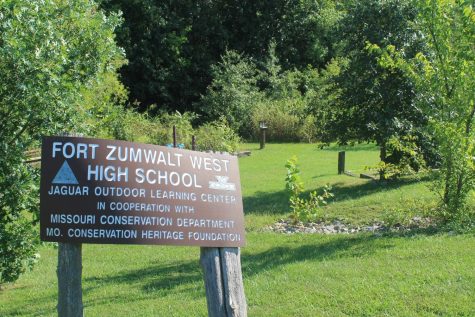
The outdoor classroom is under utilized and is only used by a few classes.
UTILIZING OUTDOORS:
91 percent of West students said they have more than one class that has no windows or a teacher that keeps the blinds shut, it is not practical to have windows in every room but the use of sunlight could be explored. Faux lighting in schools is responsible for 26 percent of energy use, according to corbettinc.com. In schools that promote sustainable buildings, natural lighting plays a huge role in decreasing school costs. It has countless other benefits such as improved concentration, academic achievement and mood according to globaldigitalcitizen.org.
Another simple adjustment is better use of the outdoor classroom. Classes such as Environmental Science and some of the English classes use it to learn skills and build a better connection with nature. Schools have expanded the idea of the outdoor classroom and have built gardens. In a school of this size it is not practical to grow vegetables but planting flowers or shrubs can still give back to the Earth.
“I think that having a garden is very beneficial, and several schools in the St. Louis area have gardens as sustainability has become a valued concept,” Coleman said. “Perhaps our school could promote a philosophy that encourages outdoor education or organize some off campus outdoor education field trips.”

